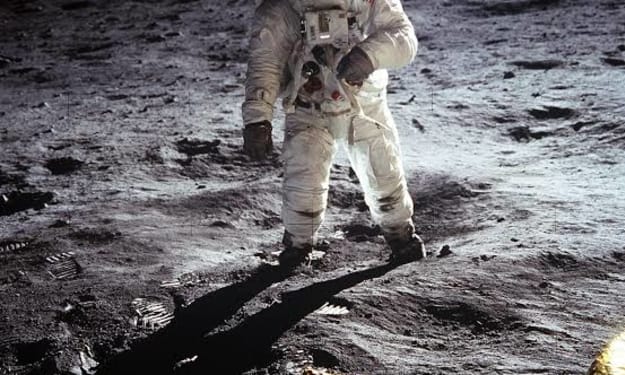
It is the moon's satellite and the most thoroughly studied exoplanet. We have launched many lunar probes in the hope of gaining a deeper understanding of the Moon. In the last century, in particular, the United States and the Soviet Union launched many probes, but none were very successful, so many crashed on the Moon or exploded in space.
Of the many lunar probe crashes, the most impressive was the Genesis, not because it crashed more tragically or strangely, but because the Genesis took off with an Earth creature. This creature was placed in a special device - a lunar library.
"Genesis was officially launched from Earth on 21 February 2019 and successfully entered its intended orbit, but just as it was about to land on the Moon, the unexpected occurred. Genesis suddenly broke down, completely disobeyed, and ended up on the moon. At the same time, some conventional scientific equipment collided with an Earth creature.
The creature that Genesis was carrying was the hardiest creature on Earth - the water bear bug. In total, more than 1,000 water bear worms are contained in jars made of epoxy resin. What is a water bear worm?
The water worm is an invisible creature less than 1mm in size and widely distributed in our daily lives, but many people don't know much about it. Don't underestimate the water bear worm. Even though small in size, it is very vigorous and far outlasts most species on earth.
Scientists have conducted several experiments to study the limits of the water bear worm's lifespan and have found that whether its heat, cold, radiation, low pressure, drought, lack of water, or high salt concentration, the water bear worm can cope with it, adapt quickly and then survive. As a result, scientists have attempted to take water bears into space to study their survival time and ability in space. As a result, over 60% of water bears can survive in space. It is because of this ability that water bears can be called the hardiest creatures on Earth.
This time, Genesis is carrying the water bear bug to the moon to study the time frame and the possibility of the water bear bug surviving on the moon alone. If the water bear worm does survive on the moon, it will begin to breed and settle. This would certainly be a major discovery with high research value. But although Genesis crashed, the water bear worm probably won't die because it is protected by special materials that act as a cushion. Maybe some of the water bears will die in the explosion, but I think some will survive.
So what happens to the surviving water bears? It might be a good idea to understand what makes water bears so special. Why are water bears so resilient? The main reason is that the water bear worm can enter a 'dormant' state, which means that it can maintain its immortality with minimal energy consumption. In other words, it hibernates like a snake.
Does this mean that the water bear worm is immortal because of this skill? Of course not! The water bear bug would also have a hard time sustaining itself when it encounters the moon's environment. The moon itself has not only a wide range of temperature fluctuations but extremes that the water bears are simply unable to cope with. In direct sunlight, the surface of the moon can reach temperatures of 127 degrees Celsius, while the temperature on the other side of the moon is as low as -183 degrees Celsius. The temperature difference between day and night has long exceeded the limit for water bears.
Common sense would suggest that water bears would have a hard time surviving. However, I think maybe some water bears could get inside the moon and then adapt to it and start breeding. After all, the interior of the Earth is a natural sanctuary. The interior of the Moon may also have a comfortable environment for the creatures to use. What do you think about this?
About the Creator
Bar wall
Countries people need science, not scientific development, will certainly become a colony。






Comments
There are no comments for this story
Be the first to respond and start the conversation.